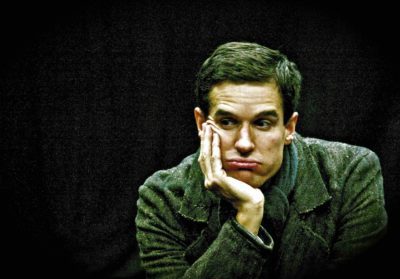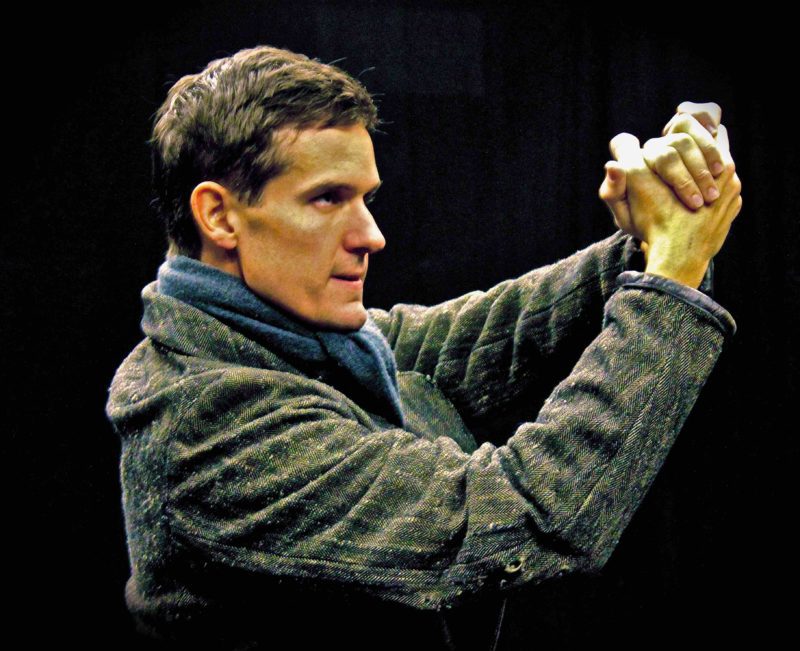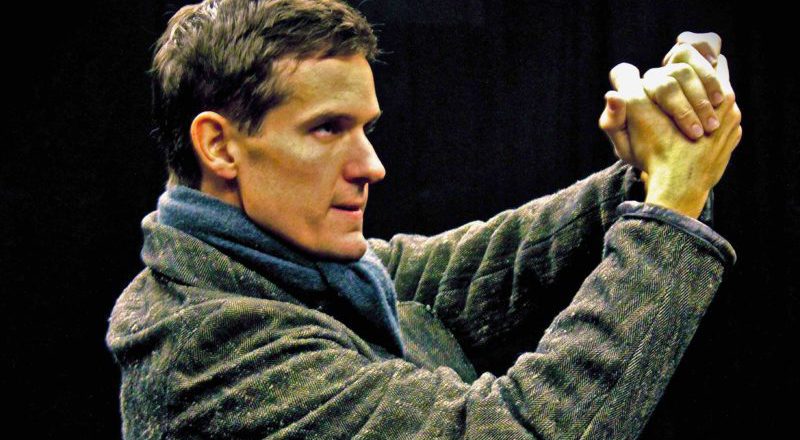INTERVIEW: Triumph over adversity is dominant theme of new play ‘A Regular Little Houdini’

Many people, whether they love magic or not, know the history of the great Harry Houdini. What they may not know about the master performer is that he spent some time in Wales and had a great influence on many minds.
That’s where playwright and performer Daniel LLewelyn-Williams enters the picture. The actor-writer has crafted a new play called A Regular Little Houdini, which tells the story of a dockworker’s son in Newport, South Wales. This character sees Houdini’s exploits as his ticket out of the working class in Great Britain, and, along the way, he might even cross paths with the master himself.
The play is inspired by LLewelyn-Williams’ own childhood in Newport.
A Regular Little Houdini plays through Dec. 31 at 59E59 Theaters in Midtown Manhattan. Recently, Hollywood Soapbox exchanged emails with LLewelyn-Williams about the production, which comes courtesy of Flying Bridge Theatre Limited and director Joshua Richards. Questions and answers have been slightly edited for style.
What inspired you to tell this story?
Primarily I wanted to write a love song to my hometown and to honour my family history. The male characters within the piece are all inspired by my father at different stages of his life. The play is a bridge. I use a seemingly simple story about a boy, coming of age, struggling to be an individual within a pre-scripted working-class structure, to win the hearts of the audience. Then within that I seek to subtly decant a more complex subplot filled with metaphor and allegory, to ultimately raise awareness of much bigger themes: class divides, barriers to social mobility, sociopathy, empathy, immigration. The play is about hope and magic.
What type of magic is featured in the show? How did Adrian Solar and Tom Silburn help?
There is magic in the show, but the show is NOT about about magic tricks. It is about magic as an all-encompassing entity — the magic of the imagination and possibility. I studied for rather a long time to perfect the sleight of hand and illusion that [make] up the ‘stage magic’ within the show, and it does act as a vehicle for the story. [But] please don’t be fooled into thinking you will be coming to see a magic show; its so much more than just that.
What was it like working with director Joshua Richards?
Josh is an inspirational artist. We have very similar personal beliefs in the purpose of theatre, and Josh is a master of the one-person show. His BAFTA award winning film, Playing Burton, is based on his one-man show of the same title, which he has toured the world to great acclaim for 25 years. He also directed a highly successful one-person show about Orson Welles called Rosebud, which played at 59E59 several years ago.
When I wrote my first draft of the script, I knew there was only one director I wanted to work with. I sent him the draft and prepared myself for what I knew could be months before I received a response. He called me 69 minutes later. He told me he opened the document expecting to scan the first couple of paragraphs but found he couldn’t tear himself away. He hungrily devoured it in one one sitting and responded to me with a very short call. “Yes.” After a bit of tweaking back and forth, we were ready. I would also like to mention the marvelous Meg Cox, who composed and recorded the music for the show. She is a Celtic folk musician with a prodigal talent. She was 13 years old when she wrote the soundtrack, which is available on iTunes.

What type of city is Newport, South Wales?
Newport in South Wales was an industrial boomtown and a cultural melting pot with what [were] at one point the biggest docks in the world and one of the main coal exporting docks of the British empire. Since the 1980s, however, the town has fallen on hard times. The coal industry has has been dismantled, and the steel production in the area has been ‘outsourced.’ It is now a depressed post-industrial town similar to those in the rust belt of America.
I grew up here, and within my living memory and within one degree of separation, I have seen the town go from bustling industrial hub to a fiscal wasteland with no employment opportunity. We now have a situation where two to three generations have grown up with no hope of a future in their hometown outside of the welfare system. This has created a sentiment of feeling cursed for having been born where they were. I seek to spin a positive propaganda piece set on that very ground. A modern fairytale, fueled by tenacity, dreams, compassion and love. I want to tell a positive working class immigrant success story set in my hometown.
What do you hope audiences at 59E59 take away from the performance?
I would hope they are somewhat changed, moved by the emotive elements of what is in essence a story of triumph over adversity, and of love and loss and hope. The reason I make theatre is to unite an audience behind one common humanitarian theme and hope that the geography of their divisions and their personal politics they carried with them as they entered the room are perhaps slightly less prominent and divisive when they leave.
By John Soltes / Publisher / John@HollywoodSoapbox.com
A Regular Little Houdini plays through Dec. 31 at 59E59 Theaters in Midtown Manhattan. Click here for more information and tickets.

